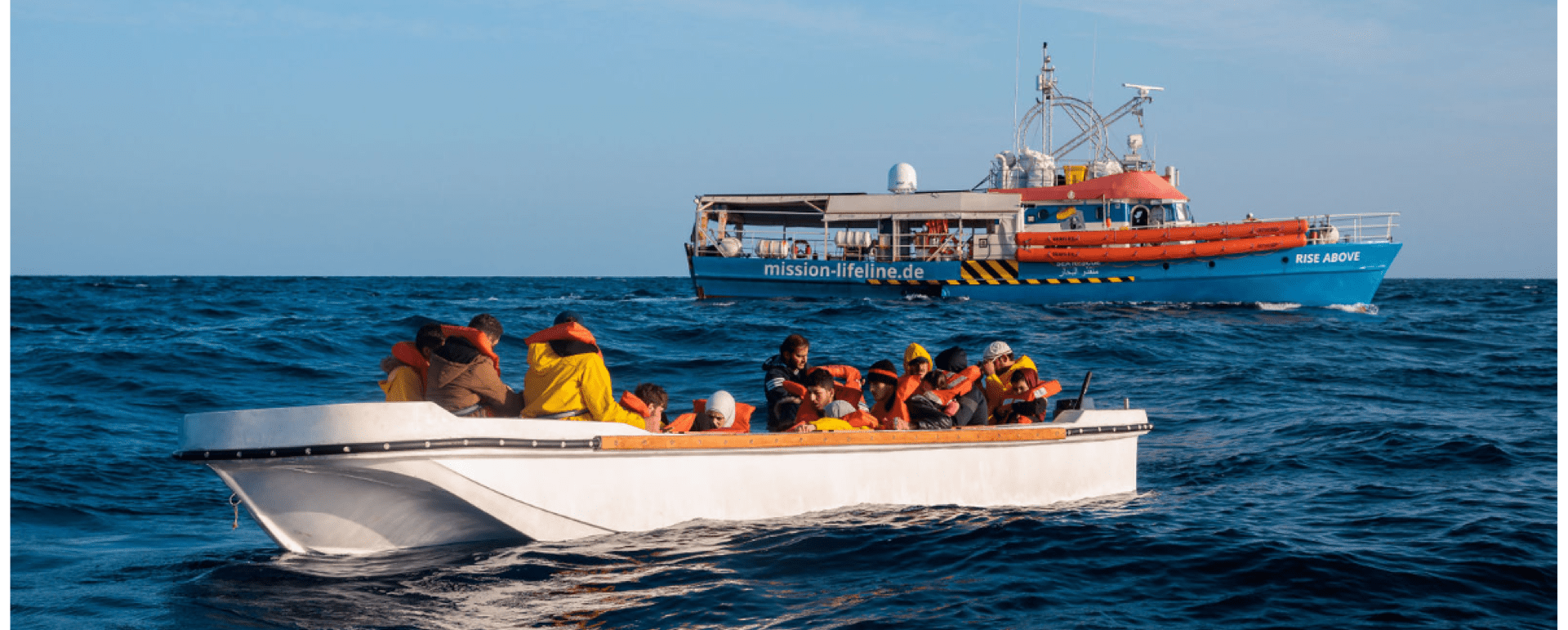
Italy wants to intervene extensively in private sea rescue with new laws
Italy wants to intervene extensively in private sea rescue with new laws
Mission Lifeline does not give up
18. Dezember 2022
After the Dresden-based NGO Mission Lifeline rescued 63 people in international waters in the Mediterranean on Friday and transferred them to the larger “Sea Eye 4”, the crew of the “Rise Above” took 27 people – all of Syrian origin – on board on Saturday in another rescue mission, including many women, babies and children, one of them unaccompanied. Unlike all previous missions, where entry into a port was often denied for days, this time the “Rise Above” was assigned a Safe European Port with Gioia Tauro just hours after the rescue.
As it now turns out, the initially positively received message should only be a foretaste of what Interior Minister Piantedosi wants to launch immediately after the Christmas holidays with a decree to be issued on a code of conduct for sea rescue NGOs:
According to this, ships of aid organizations carrying out rescue operations in the Mediterranean would have to head for a safe port immediately after each operation and bring the people ashore. They would not be allowed to remain in the search area to help people in other unseaworthy boats and then disembark them collectively. The rule of immediate disembarkation of migrants – Piantedosi argued – is in line with international conventions that declare a rescue complete only when the rescued persons are brought ashore in a place of safety. It also seeks to prohibit transfers from one humanitarian ship to another, as is often the case in operations involving smaller ships such as the Rise Above, which is less suited to keeping very large numbers of people on board for several days.
“What is intended by this is clear. These new rules are designed to deliberately subtract rescue capabilities while people are fighting for their lives on the run. The interruption of our missions after every minor rescue and the immediate return to shore will also inevitably result in significantly higher fuel costs and a lot of time lost,”
explains Hermine Poschmann, board member at Mission Lifeline.
NGOs that do not comply with these new rules will then be subject to sanctions that are no longer criminal, as before, but administrative in nature, and can result in immediate fines and the seizure or confiscation of vessels.
In this context, the Italian plan fits in with the action plan recently presented by the European Union, which also aims to impede civilian rescue at sea.
Already in November, Hermine Poschmann had spoken out clearly on this in a statement to the EU Parliament in Strasbourg:
“Stop violating laws and human rights. Stop constantly coming up with new rules that are only meant to let people down in an undignified and unlawful way. At last, start treating people on the run like human beings. Start respecting existing laws and start implementing a system of real solidarity throughout the European Union.”
And Axel Steier, also a board member at Mission Lifeline, adds:
“There is a risk that the obligation to comply with the International Law of the Sea will be completely undermined. With the profoundly anti-human hysteria (from Trump to Europe) on the issue of migration, there is a risk of losing civilizational achievements and universal rights,”
Mission Lifeline has been conducting search and rescue operations in the central Mediterranean Sea since 2016. Since its 1st mission in the Mediterranean Sea, thousands of people have been rescued from distress at sea.



